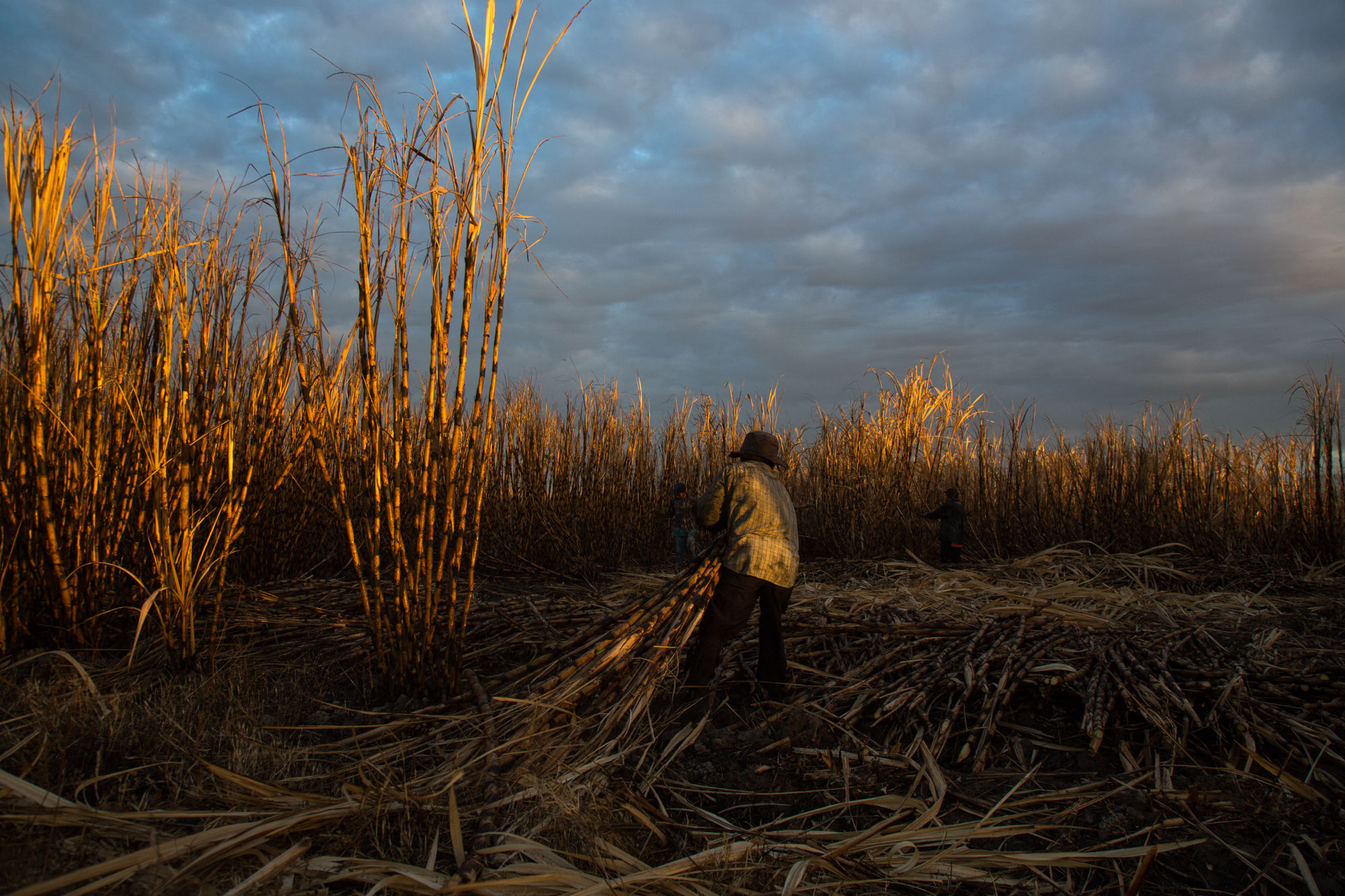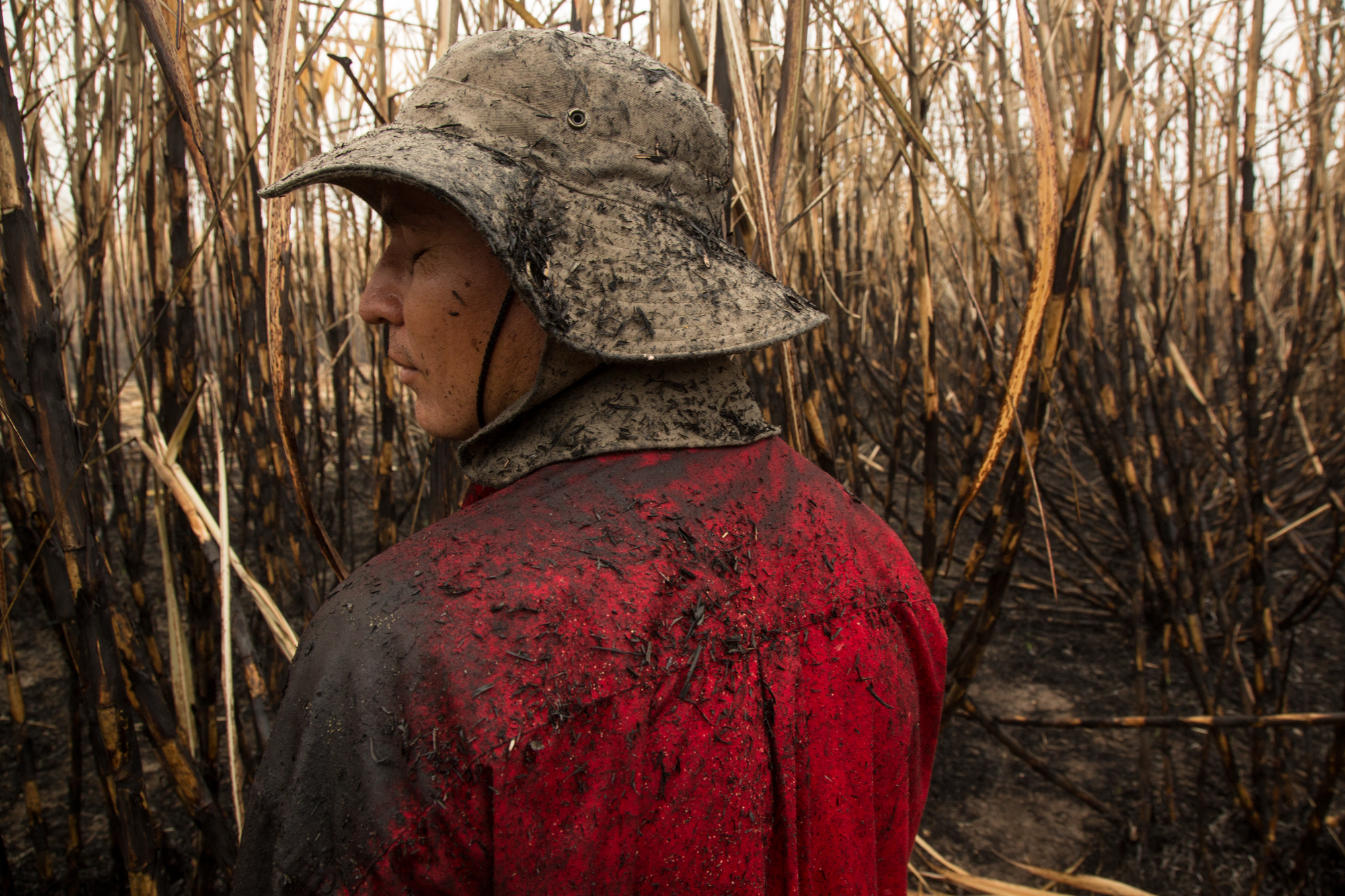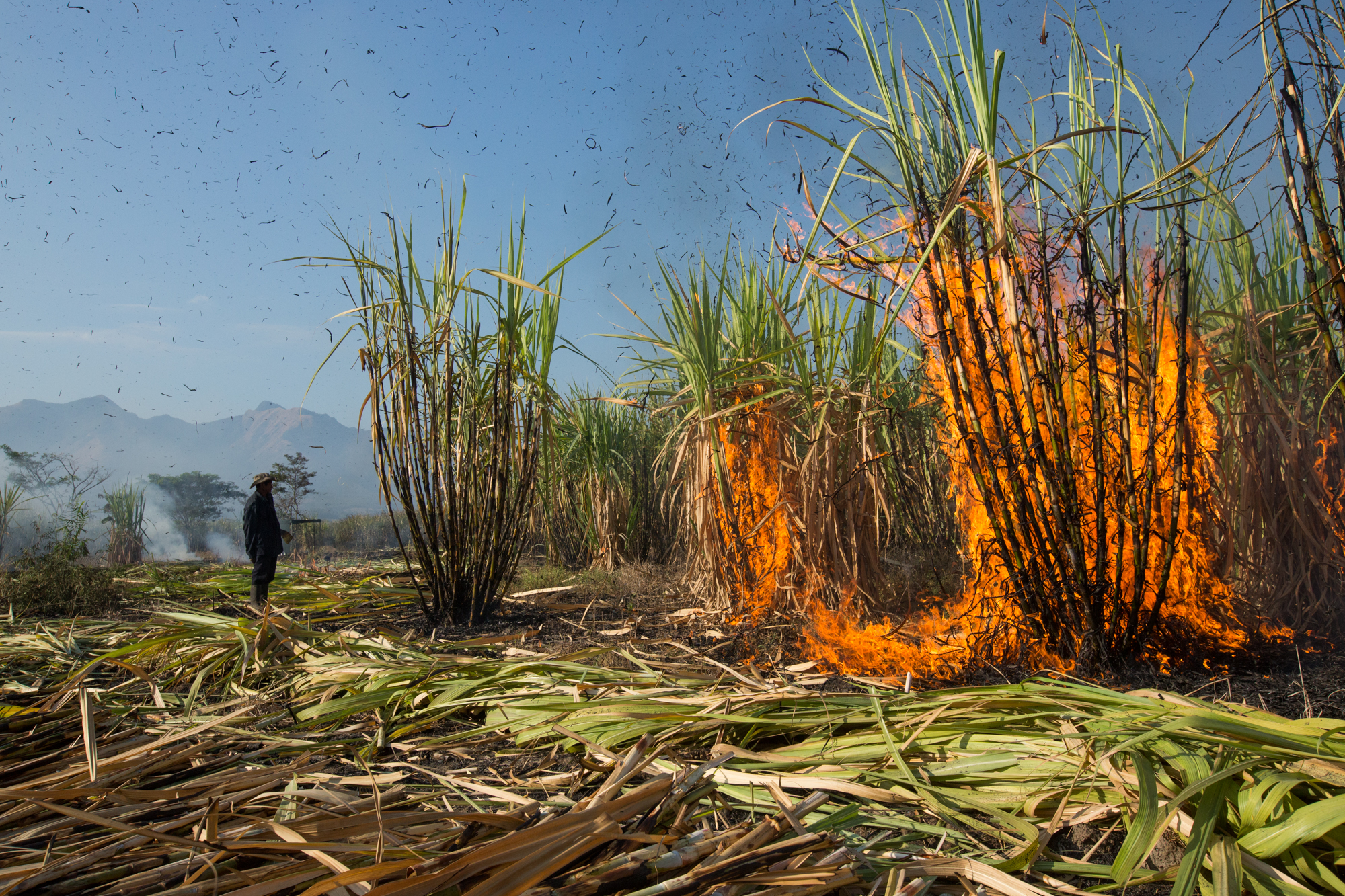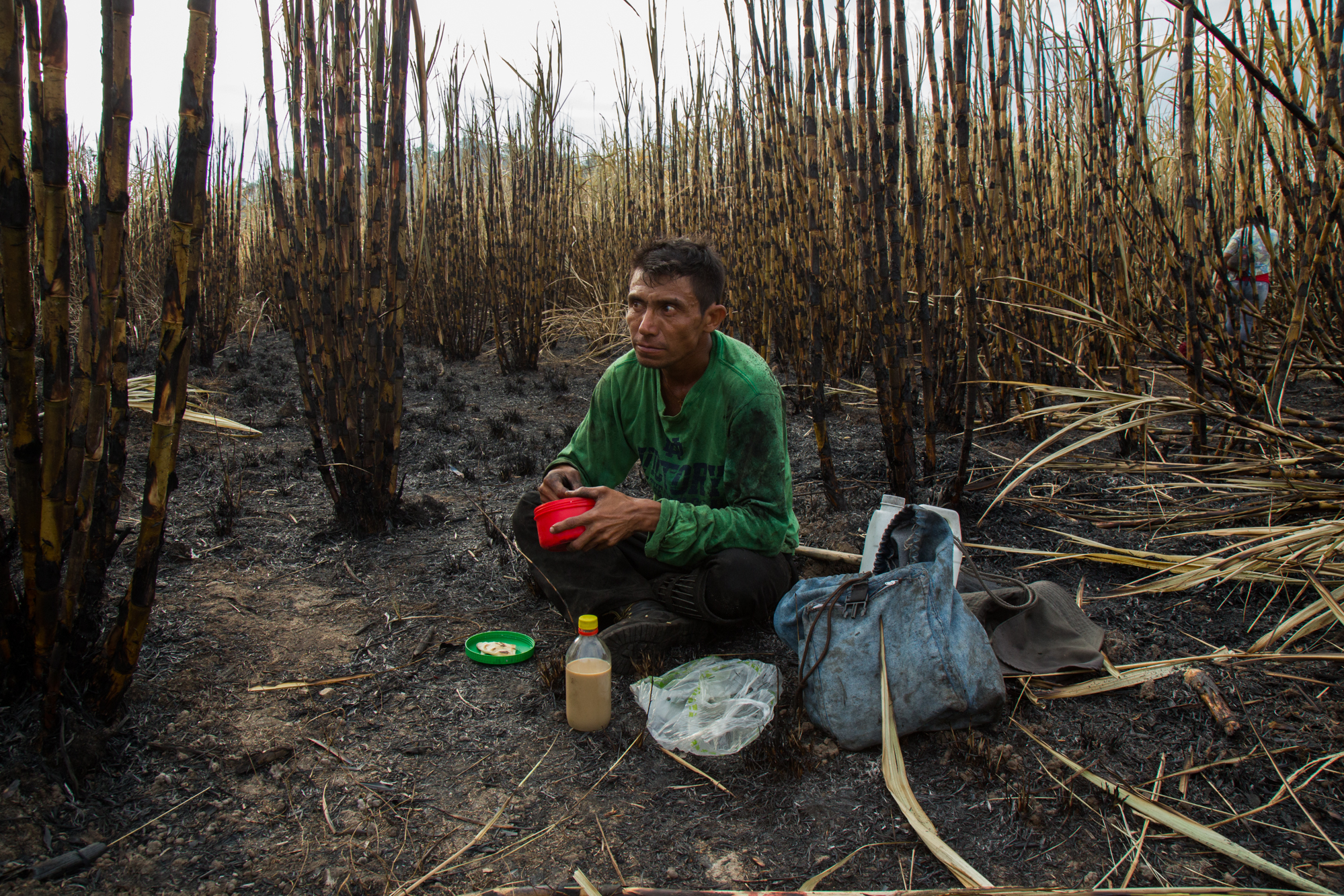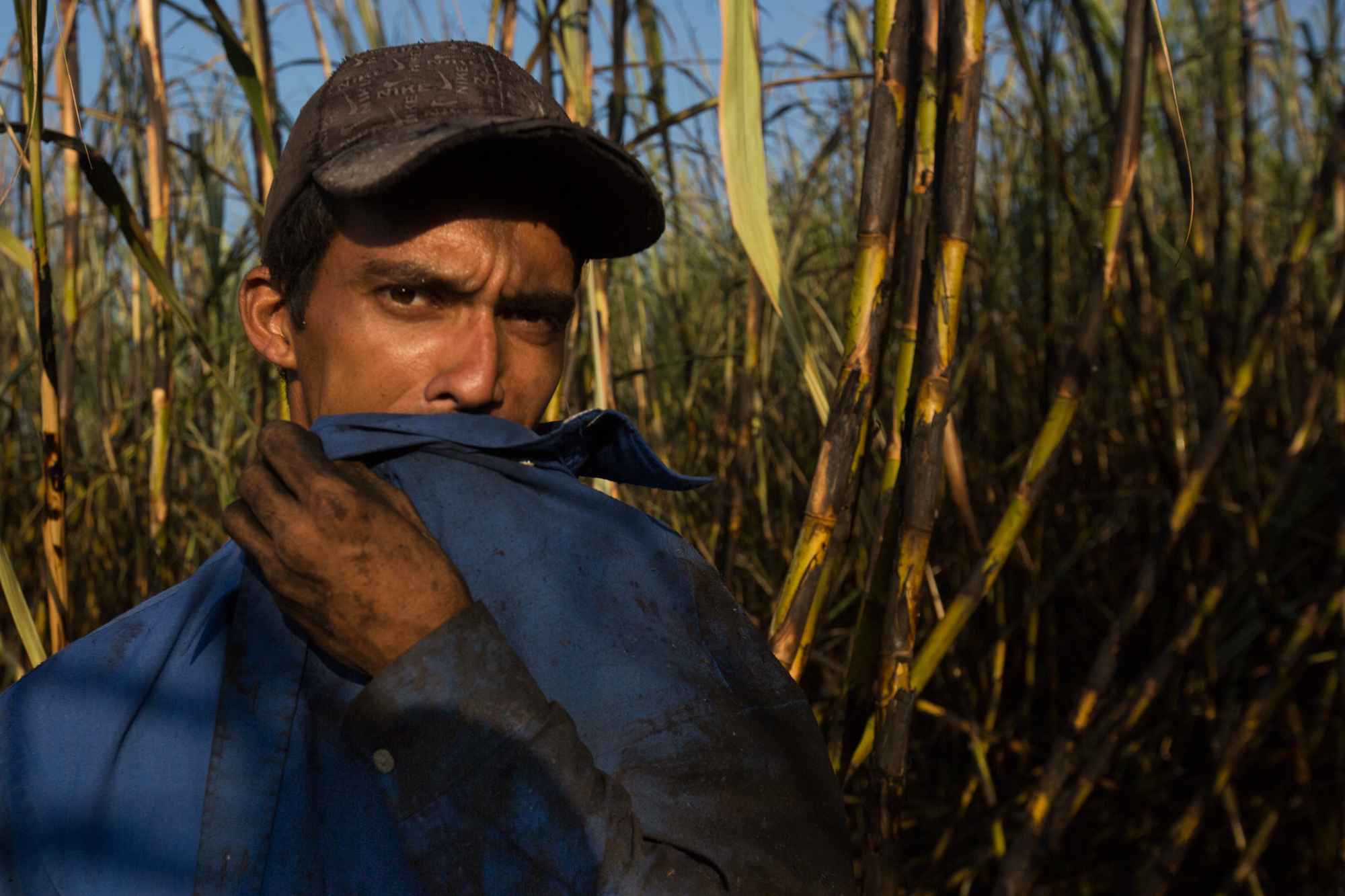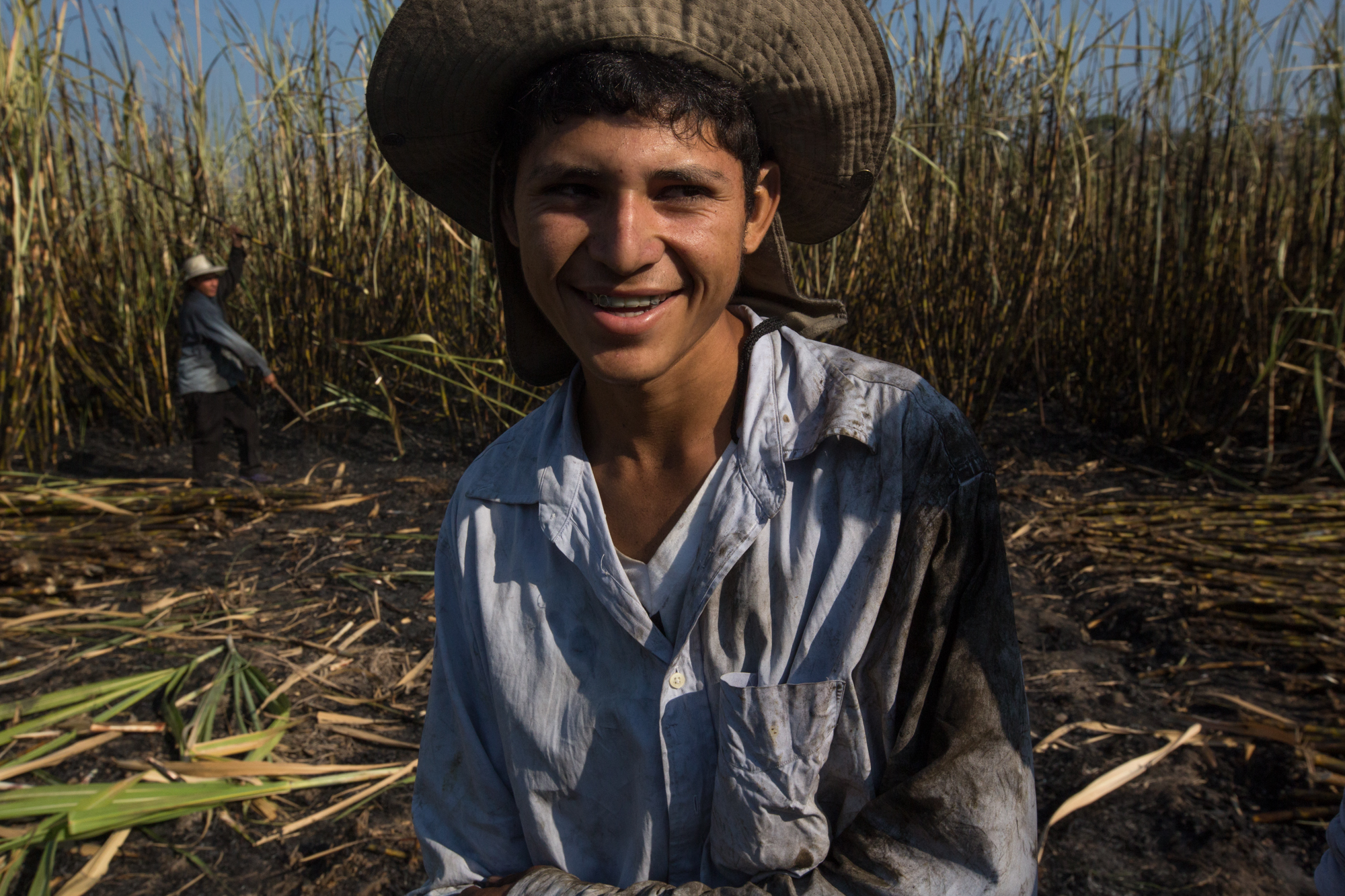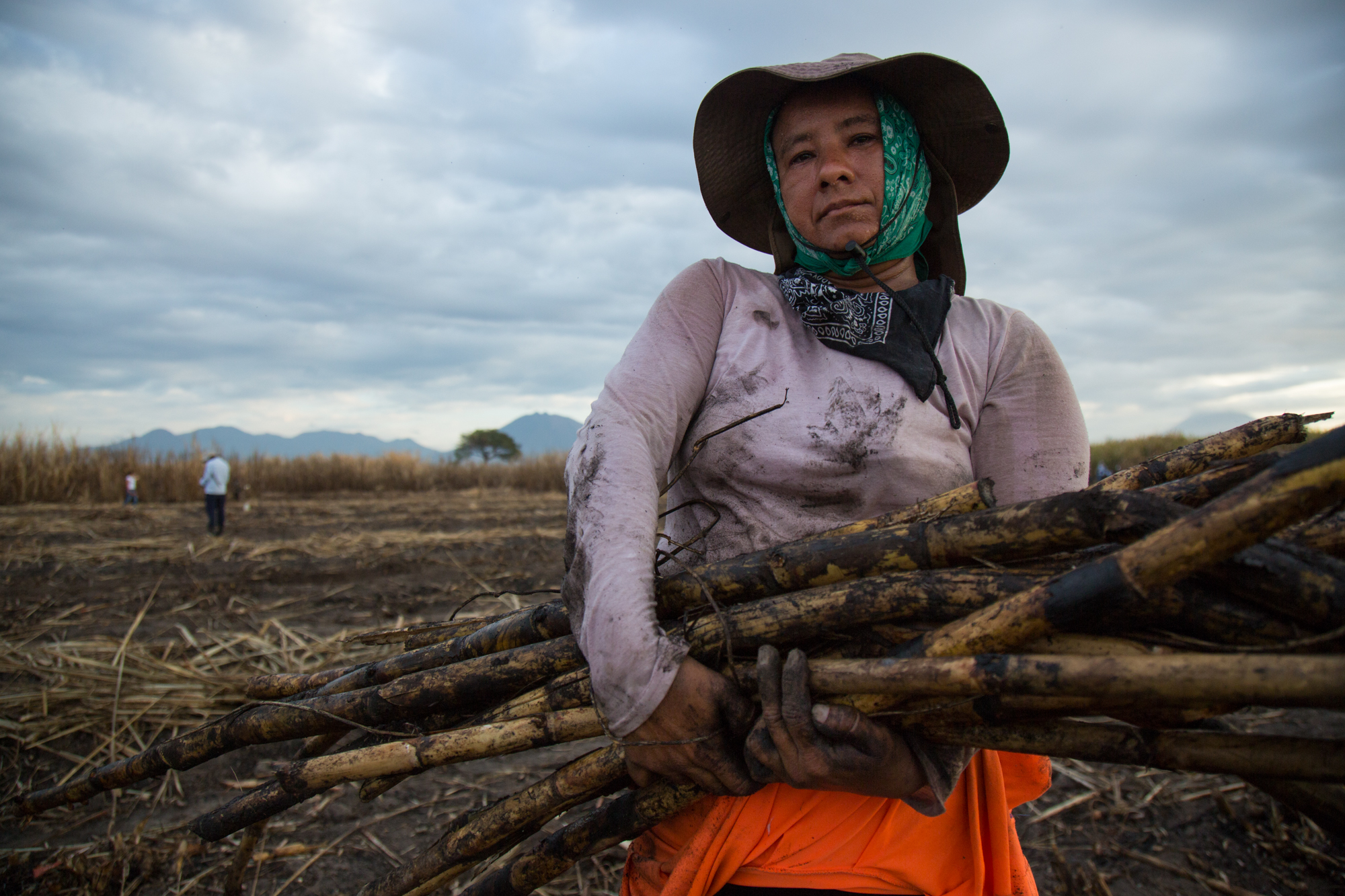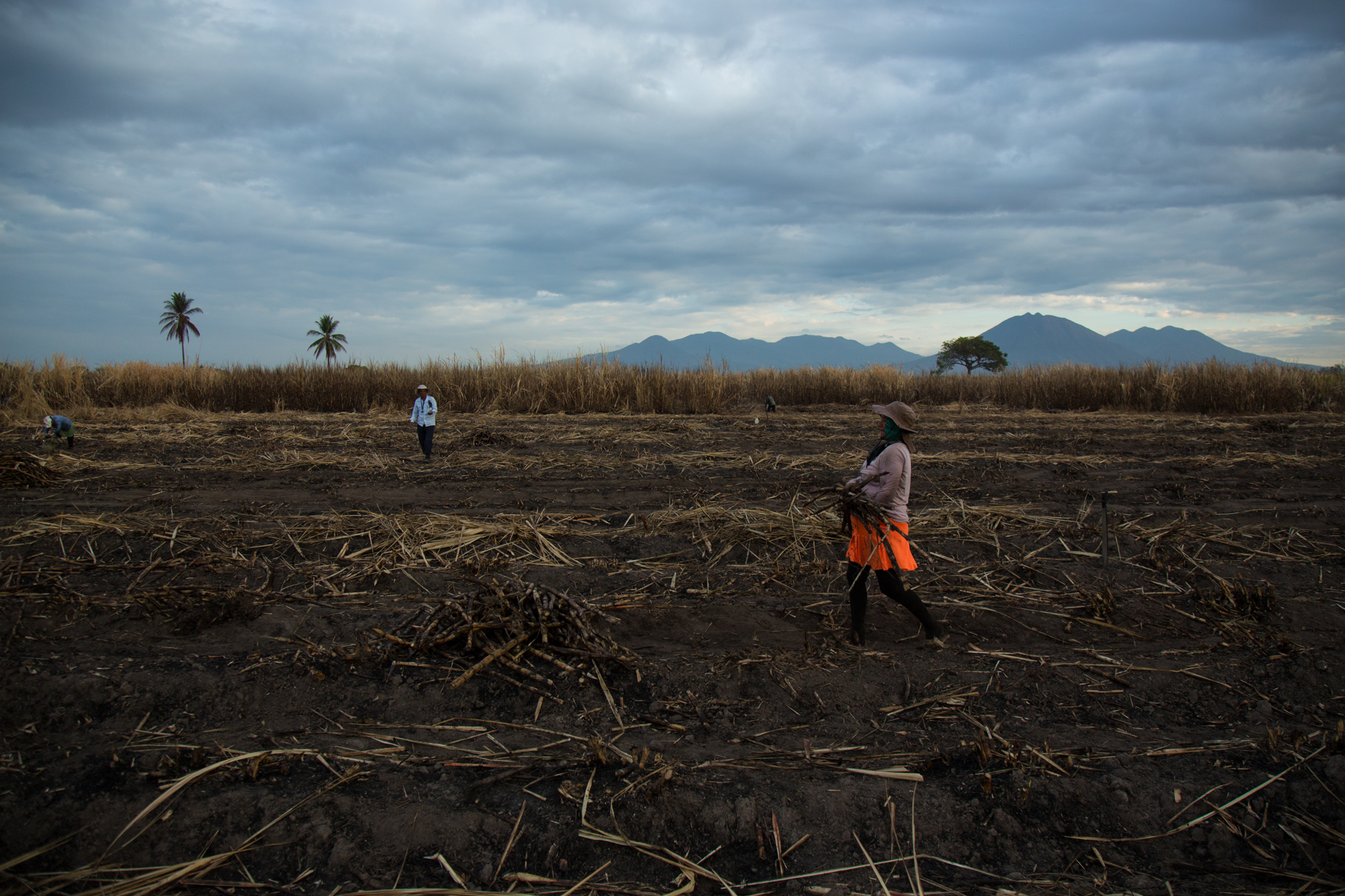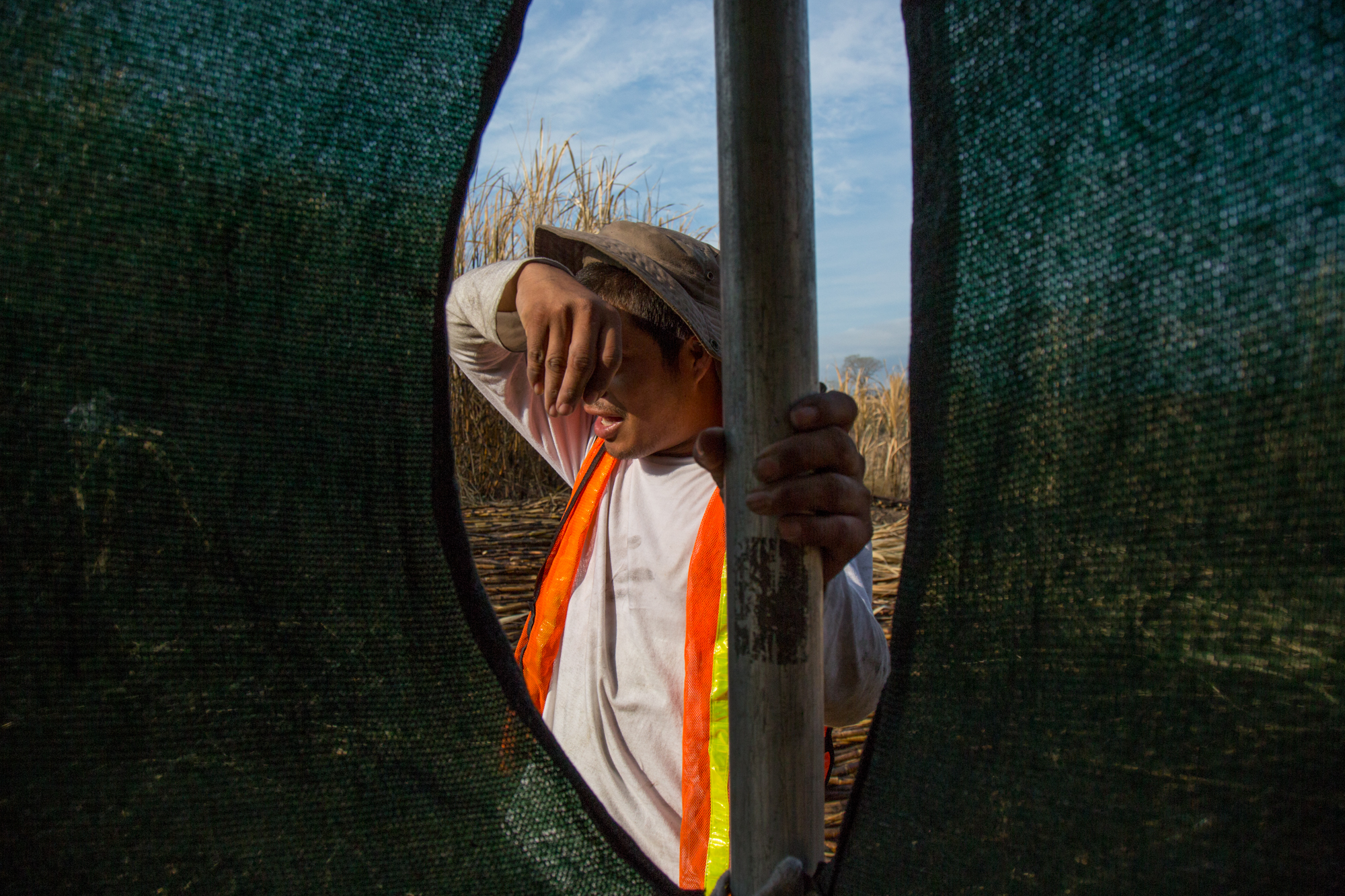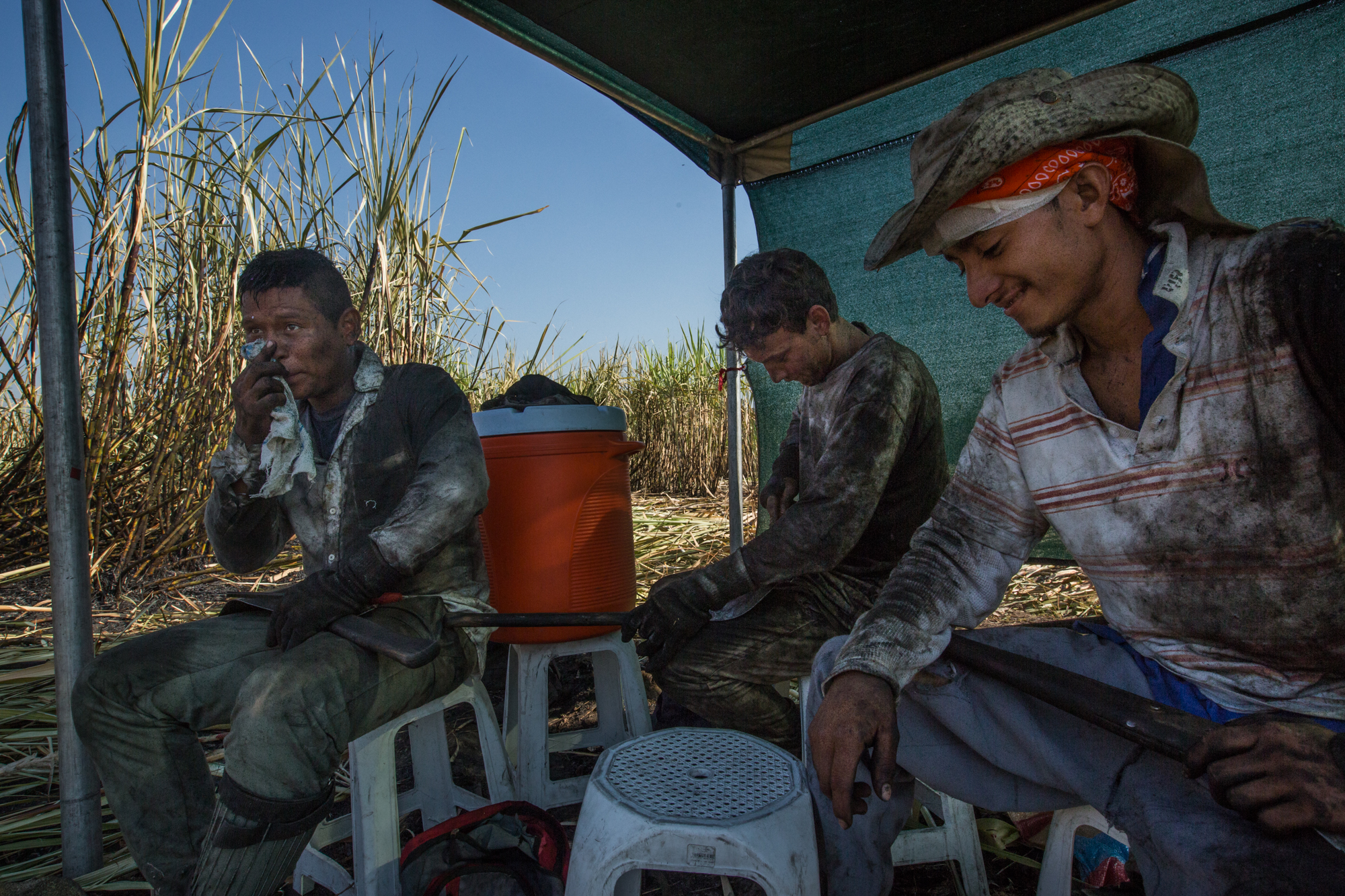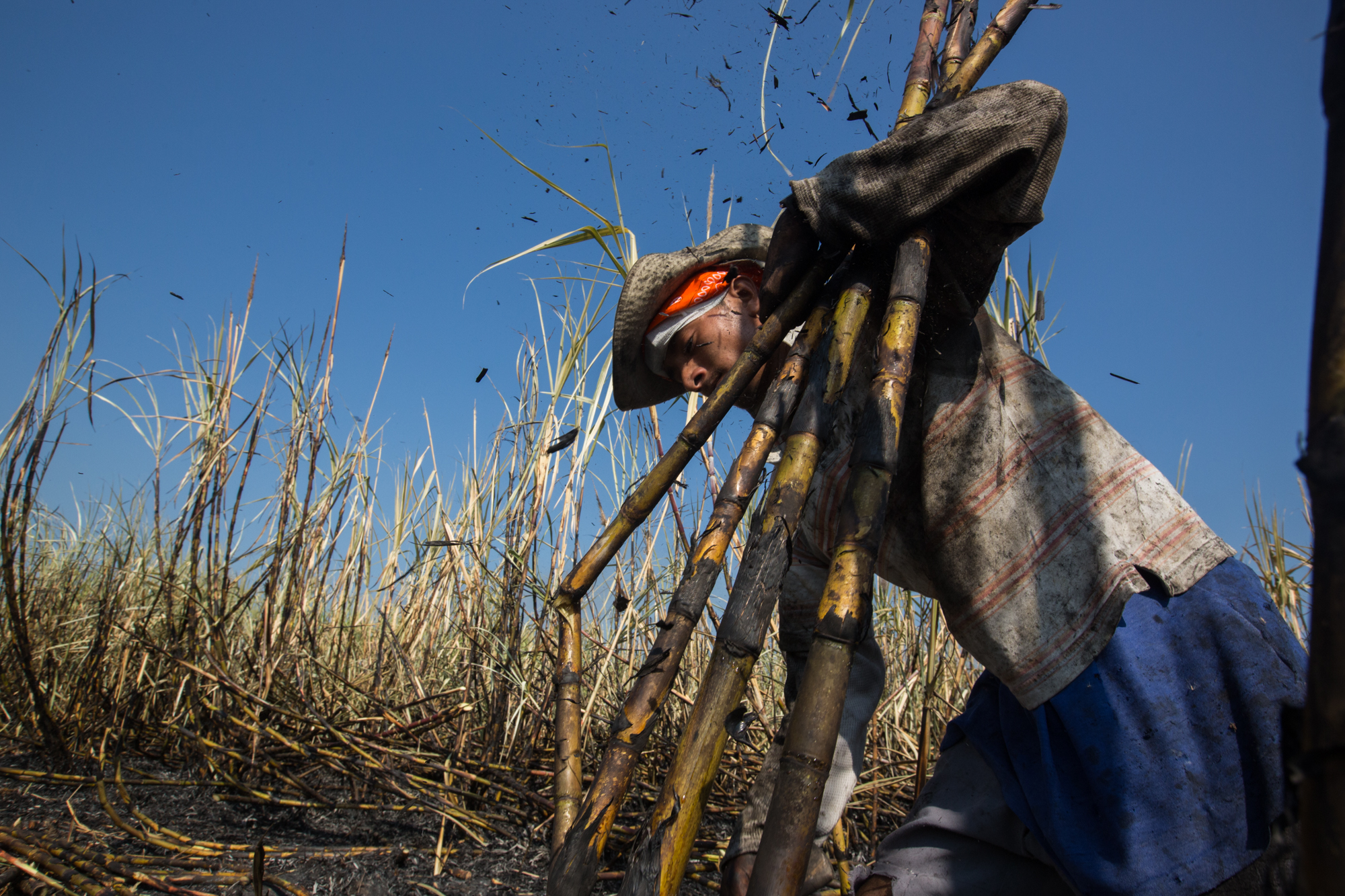SHADOWS IN THE SUN
Before the sun rises an army is on the move. They are men and women, young and old, armed with curved machetes and old oil jugs filled with water, bandanas to protect their face during the ensuing battle. They slip into the smoldering sugarcane fields in the darkness, to cut another day’s worth of cane. Within hours, soot and molasses will blacken their skin while they leave wakes of cut stalks behind them. They hack through the heat of the Central American sun.
Sugarcane workers in El Salvador are a shadow of society. They are a vanishing reminder of the agricultural roots of a country embedded in the violent turmoil of an emerging economy. Over 10,000 sugarcane workers since the start of the millennium have died of an unknown form of kidney disease. Mechanization of the archaic industry is rapidly eliminating basic, manual labor jobs like cutting cane by hand. New job opportunities in factories and call centers offer more stable incomes and a respite from fieldwork. Many who don’t qualify migrate North. Others fall into gangs. But with only roughly 20% of El Salvador's sugarcane industry mechanized in 2016, thousands of men and women still earn their incomes supporting their families by cutting cane.
For a job that has not changed much since it was introduced to the Americas some 500 years ago, the sugarcane industry is taking measures, whether it likes it or not, to protect the health of these remaining workers. A program focused on protecting the health of these workers is being carried out at El Angel sugar mill in El Salvador, led by public health and policy NGO La Isla Network by improving labor conditions and securing access to water, rest and shade. By modifying machetes, they have found a way to become more efficient and make the work less physically demanding. Results are preliminary, but rates of kidney disease development are estimated to have stabilized among participating workers while overall cutting efficiency increased by 30% or more.
While the sugarcane industry throughout El Salvador continues to mechanize, much can still be done to improve the conditions and health of the workers. Meanwhile, these men and women toil to support their families, hidden in the fields, vanishing like shadows in the sun.
All photographs copyright Tom Laffay. Any use requires explicit authorization. Thank you.

